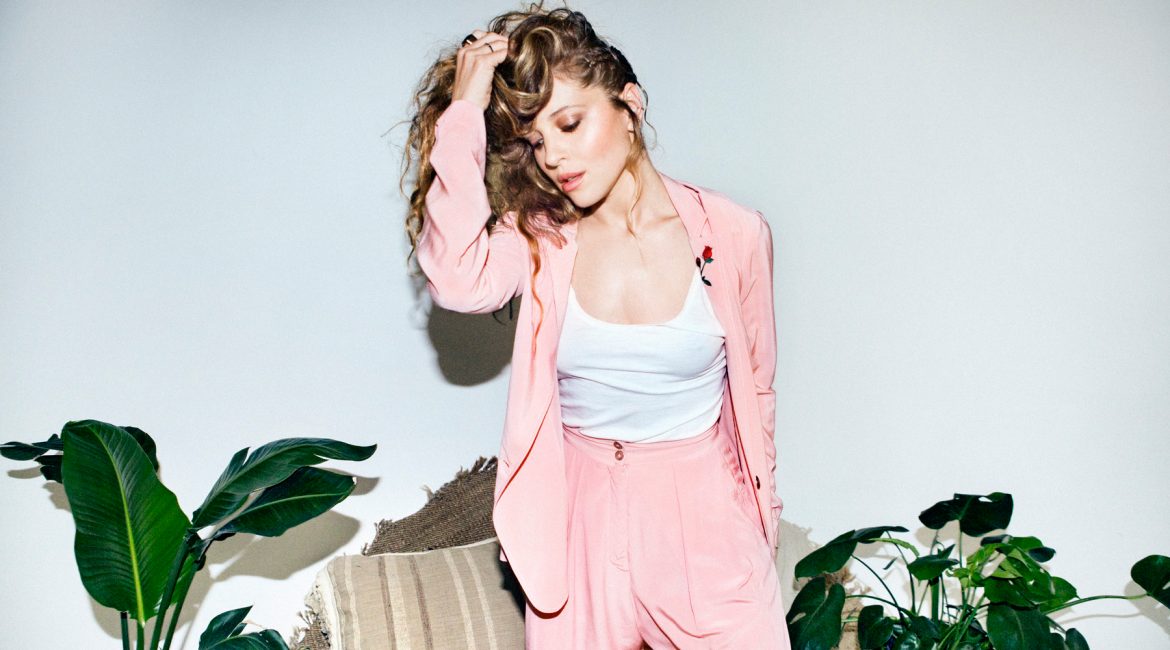In this interview with Posture, Russian-born actress Margarita Levieva discusses her past as an undocumented immigrant, and her experience working on George Pelecanos and David Simon’s highly regarded HBO series “The Deuce,” which gives soul to the hustle of Times Square sex workers, and the rise of pornography in the 1970s. We also had the pleasure of photographing Margarita for this original editorial. Read on below to learn more!
Can you speak a little bit about your upbringing — I understand that you and your family emigrated from Russia?
Yes, my mother, who was, funnily enough, younger than I am right now, brought my twin brother and I here from St. Petersburg. We were 11 years old; I remember everything. I had just finished the fourth grade. A lot of what was instilled in me even then gave me my foundation for the human that I am. In many ways I was already grown up, you know? Or at least I had to be, because we came here with a single mom, and no paperwork. We came with no money. We came illegally. We came on a 30-day visa.
As many immigrant families do.
For sure, and no English, and no family.
You guys didn’t even have family that you were connecting to here?
No.
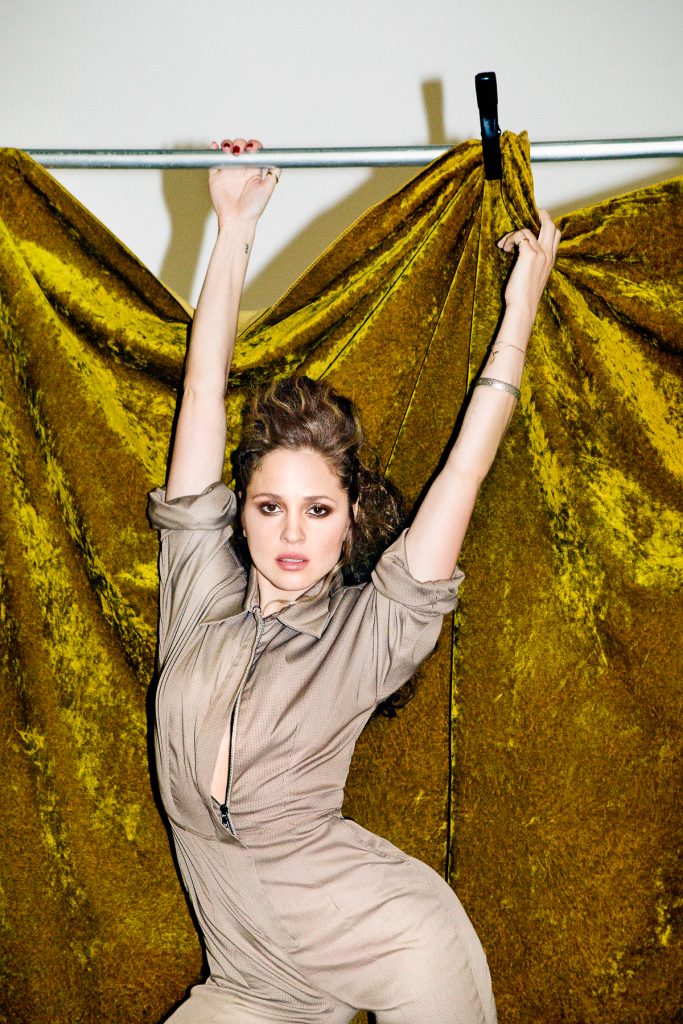
Jumpsuit: Colovos
That’s incredibly brave of your mother. It must be really remarkable, especially considering the current political climate, to have that sort of history in yourself. How did being an undocumented immigrant affect you as a child?
I mean, it’s a really disturbing time in regards to being an immigrant. Even back then we had a really challenging time as illegal immigrants here; there wasn’t any due process. It wasn’t like we came here, and immediately got our paperwork. We weren’t allowed to leave the country for about 10 years, and I didn’t get citizenship for about twelve years. We had a very lengthy court process. I remember going to court for six months — after which the first judge actually tried to deport us and gave us 30 days to leave.
At that time we were in high school, and my mom was working full time and paying taxes. We applied for asylum, and part of the reason was the anti-Semitism we experienced in Russia; it definitely affected our lives, my brother was getting beaten up after school, and there were all these altercations. In Russia at the time you had to list your religion on your passport, to mark if you were Jewish or not. We couldn’t go to the Synagogue. One of the reasons that we asked to stay is because my mom felt like it would be dangerous for us to go back, as it wasn’t an environment that was very safe, and the judge said that he didn’t think that there was any problem for us to go back to Russia. Then we had to appeal, and wait several years until we got a new judge, and then we became legal. It was a very lengthy and a very costly process, which our mom at the time didn’t have the money for. So it was extremely challenging.
I’m just floored by the determination and bravery of your mother as a single woman to make that choice for herself, and for her children, and to do what so many people cannot, you know? Which is to step out of the life that they are handed, and create something entirely new.
She’s just an extraordinary role model, especially because she was a woman and said, “I’m going to do things my way. I’m striving for something better in this life, and I want to provide for my kids outside of this institution that we have been born into.” She wanted a place where we could have real opportunities, you know? It was a really tough road.
What did she do for work?
She was a professor of Mathematics and Statistics at a university in St. Petersburg, and she also taught computer science. Then she came here, and basically bagged groceries. She didn’t speak English. Options were definitely limited for a while. Now my mom runs her own business and she’s doing okay.
It’s tough for me when people talk about the political situation in America because it’s one of those things where there are so many problematic things, and at the same time, compared to where I come from and the life that I’ve witnessed around me outside of America, I’m really grateful to America and the opportunities that we got here.
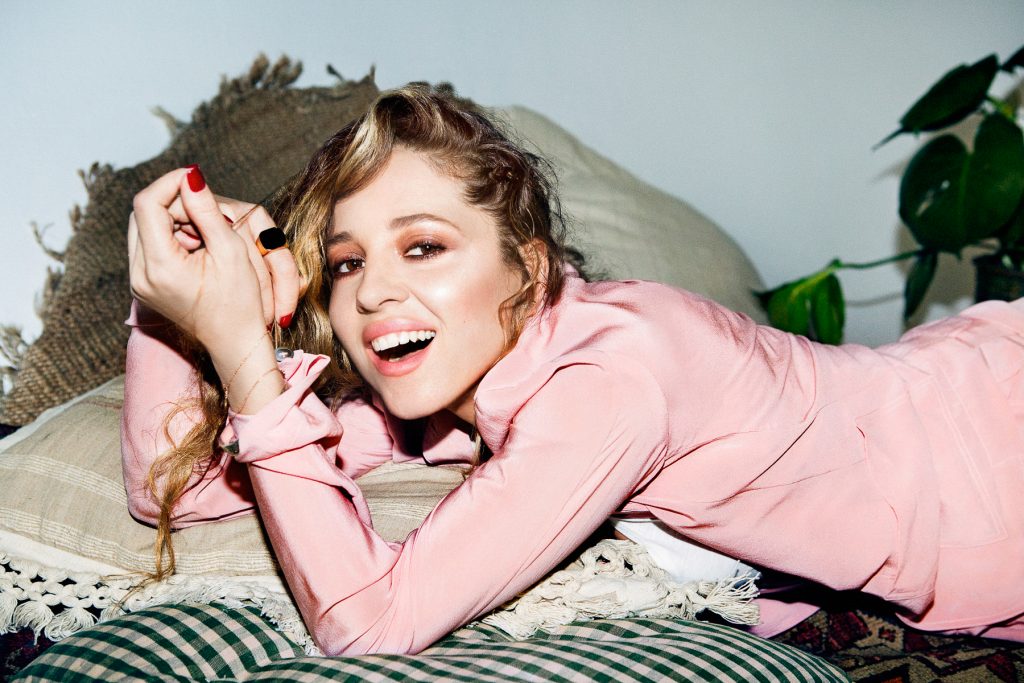
Suit: Adam Selman
For sure. Speaking of opportunities, I definitely want to discuss HBO’s new show The Deuce. What is it like working on the show, especially as a woman? It’s such a particular time in Hollywood at the moment and it’s interesting to me that this show is airing now, because there are so many issues that are warped and mirrored in both the industry of entertainment and the industry of sex work. What is it like to be in this period drama, working with this cast, delving into issues that are just as important today, now, as they were back in the seventies?
That’s the thing that is so fascinating, because the show takes place in 1971. One would think that it was a different time back then and I think watching the show, it’s so apparent that it’s very relevant and on par with some of the things that are still happening today. Equality for women, their roles in society. Their roles in comparison to men. I think what I draw on for my character is that it compares a little bit to my mom’s story — in the sense that Abby, who did not grow up in Russia but in Connecticut, feels oppressed, feels like she does not belong, and she knows there’s another way. She’s hungry to find out what it is. I’ve compared her before to Dorothy in the Wizard of Oz, or Alice in Wonderland.
Abby is also taking charge of her sexuality. She’s not going to make her life about being someone’s wife or a stay-at-home mom. She’s not going to shut down her own desires, and dreams, and the voices that are so loud within her. She’s not going to stand by the old ways.
Which definitely, as you said, mirrors your mother’s story in some ways.
Totally. I think what’s interesting about Abby is she is a witness to a lot of this stuff. Playing her so far has been like testing the waters. She has a very low tolerance for hypocrisy.
For sure. Was it bizarre at all that she’s an NYU dropout, and at one point you were an NYU student? Was that a funny thing to play?
It was! It was definitely the magic of filmmaking. You know, there are times being an actor that are just so rewarding, and walking through Washington Square Park, around the fountains in a place where I spent years just sitting, napping, and studying — the camera and crew around me. It was really cool.
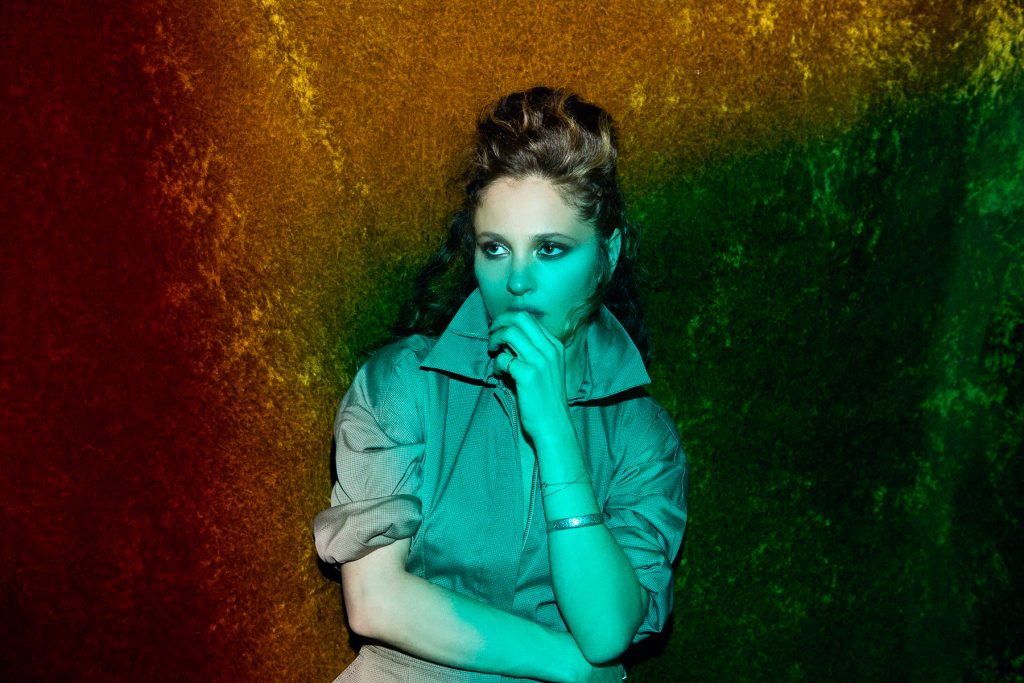
Jumpsuit: Colovos
That’s such a full circle life moment.
It’s been an interesting time, because I didn’t start professionally acting until I was, in the normal sense, older. I was like 25 when I did my first job. I’ve been working to find my sea legs, and I feel like I’m finally starting to come around to myself — I have something to say and I’m finding my own confidence and my voice. This part, playing a 20-year-old and going back to school, has been a very interesting for me on a personal level. It’s like I’m starting over in a sense.
That’s really incredible. What is on the horizon for you that you are really excited about? What interests you these days?
Well, as far as my work specifically, there is a movie that I do have coming out in theaters this weekend called It Happened in L.A. I dance and I love all aspects of the creative process. For me, what I’m mainly interested in doing is just working with really creative people, with artists, in whatever medium. I would love to eventually develop a piece, possibly for the stage, that is like a dance, spoken word piece, that would possibly be about my immigration story.
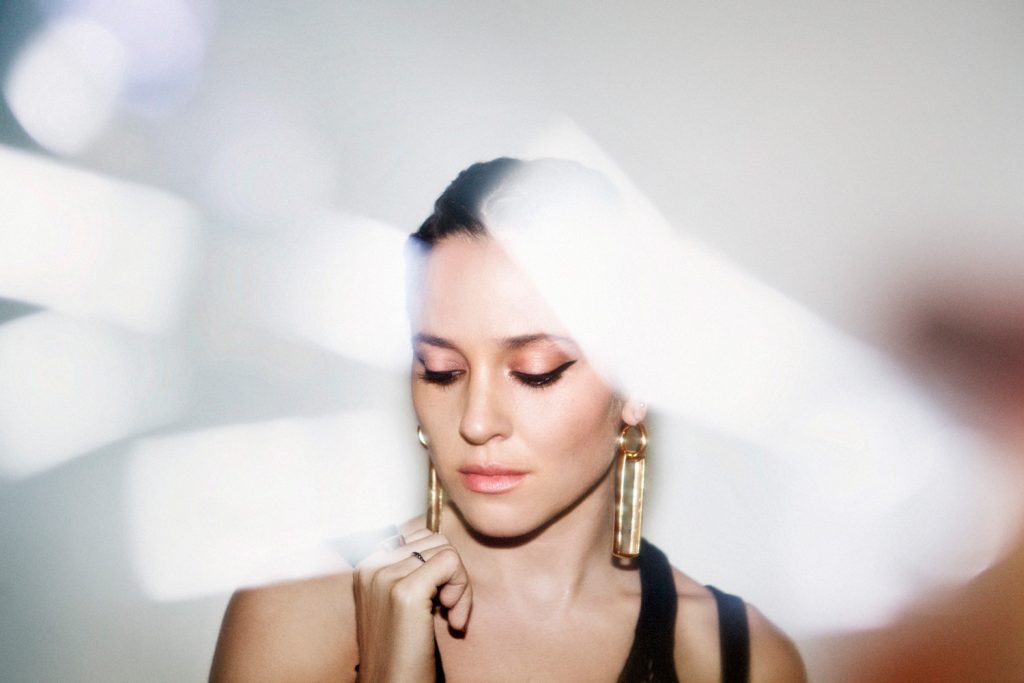
Earrings: Laura Lombardi
That sounds like a really amazing project, and it’s incredibly relevant in this current political climate to give space to, and to celebrate the stories of immigrants.
Agreed, and I mean, artists are always the beacons whenever things get politically repressive or dark. It’s always up to artists to sort of hold the torch of expression and connectivity; to address issues of privilege. I feel really honored to be a part of that.
Follow Margarita on Instagram, and learn more about HBO’s “The Deuce” Season One here.
Editorial Credits:
Creative Director: Morgan T Stuart
Photographer: Andi Elloway
Senior Photo Director: Asher Torres
Stylist: Jamie Ortega
Set Designer: Eric Mestman
Hairstylist: Takisha Sturdivant-Drew for Exclusive Artists using TSD Hair
Makeup: Justine Purdue
Location: Knick Studios
Related article: Poet Tommy Pico on Publishing and Writing Every Day

